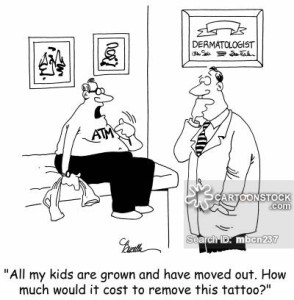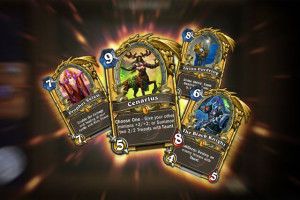Rejoice! The Grand Tournament expansion has finally dropped for Hearthstone, the popular World of Warcraft online trading card game. New cards and abilities offer countless possibilities, and the howl of excited deck-builders can be heard echoing across the battleworn halls of matchmaking. Or at least you should be able to hear them. Problem is, you have to listen closely and filter out the incessant “Wah!!” from disgruntled free-to-play fans everywhere. While a few of them are just wet and need changing, the others cry foul as Hearthstone’s expansion begins to cross the threshold from a free game to paid. Players are finally starting to buckle under the mounting pressure to pull out their wallets and pay the ever-increasing cost to compete.
What strikes me most about this whole situation is the sense of entitlement I am getting from much of the player base. The idea that somehow they deserve to have all Blizzard has developed for free, or in Hearthstone’s case a fair shot at it.
This attitude is toxic. Hearthstone is in no way obligated to provide players with a cost free way to play competitively. The only promise they make, and they have stayed true to so far, is that the game is free to download and play. It is entirely up to the player to be competitive.
Competition has always cost the player something – from sports, to board games, to console gaming. All of these examples share one thing in common: they cost money to play. If you are a PS4 player, you spent $400 dollars fresh out the gate simply for the ability to play the $60 dollar games you need to buy separately. Board games require an initial box cost that runs the gamut between $30 dollars to hundreds depending on what your group of friends likes to play.
The reasons you are paying this upfront cost is because the things you like to play cost money to make and distribute. Someone somewhere spent hundreds if not thousands of hours building and refining and there is a cost associated with that work.
Real sports are an even better example. I remember vividly the viridian fields of little league baseball. My favorite part of that terribly boring sport was going out with my father to pick out the perfect glove or baseball bat. To play the game you had to buy your own equipment. God forbid your child’s team wins it all and they need to travel to compete in the Little League World Series. We are talking multi-stage plane tickets, hotel costs, and food, all not covered by the non-profit team you are playing for.
Competition costing the player money is not breaking news. What is surprising is that Hearthstone had a free-to-play option in the first place, given its genre as a TCG. Playing a trading card game is the equivalent of taking hundreds of dollars and throwing them down the toilet. Buying card packs is a form of gambling and offers the same addicting adrenaline rush associated with pulling that slot machine lever.
Let’s take a quick second to talk about the king of TCGs, Magic: The Gathering. In Magic, buying packs of cards does not guarantee you anything. The packs themselves cost $4 a piece and even buying a hundred of them does not mean you have all the cards you need to build all the decks. In fact, and this may be surprising, you can easily spend $500 and not even have one competitive deck that is tournament worthy. Despite this fact MTG is literally one of, if not the, biggest, most consumed card game in the world. No one bitches and moans every time a new block of cards is released. They eagerly, if not ravenously, bust out the wallet and go to town. MTG is their hobby and as such they support the game and its growth.
The reasons for MTG’s and Hearthstone’s cost are a product of random element in their design and distribution.
The parallels drawn between gambling and buying packs are not unwarranted or even incorrect. In card games, cards are ranked on a scale of rarities. In Hearthstone for example, there are common cards, rare cards, epic cards, and legendary cards. When you open a pack you have a greater chance of getting commons than rares, and rares than epics, and so on and so forth. Oftentimes card strength scales with its rarity. Meaning legendary cards, while being some of the strongest cards, are also some of the hardest to open in a pack. This system actively encourages the player to buy packs in bulk, the hope being that by opening a ton of cards there is a higher chance of nabbing a few of those elusive legendary and epic cards. Unfortunately getting one or two of those cards is not enough, and depending on the rules of the TCG you are playing it is possible to put more than one in a deck. You can see how the cost of collecting can spiral out of control.
In Hearthstone free-to-play exists because of a combination of its unique card crafting and questing system. Essentially players are given the opportunity to earn gold through quests and buy packs of cards with it. After which they can destroy any extra cards they receive for a crafting currency called dust. With dust they can craft whatever they want. This system enables the patient player to slowly chip away at the existing card base, gathering whatever cards they need for a deck.
That is until Blizzard started releasing content patches and expansions on a semi-regular rotation. Now the sudden and steady influx of cards makes it so that it is nigh impossible for the entirely free player to keep up and remain competitive. There are simply too many different gold sinks and cards to keep an even pace with. Money has become the pressing issue.
Blizzard has crossed the threshold and their cards and content have hit a critical mass. There is now so much content that it is impossible for free-to-play players to exist, competitively speaking. And I have to be honest here, so what? Players need to stop whining and either grind out the decks they want to play or pay the cost up front just like every other form of entertainment on the planet.
Hearthstone is not different from any other sport or casual form of competition. The game is not free to develop so it makes sense that it also is not free to play. The argument that it should be is completely absurd, especially considering it does not have an initial box price or sales tag. Hearthstone as it stands is still a free game to pick up and try. The cards themselves are what cost money.
As the old adage goes, nothing in life is free. A fact especially true for those seeking perfection in competition. To the true competitor cost is just a matter of determination and hardwork.










